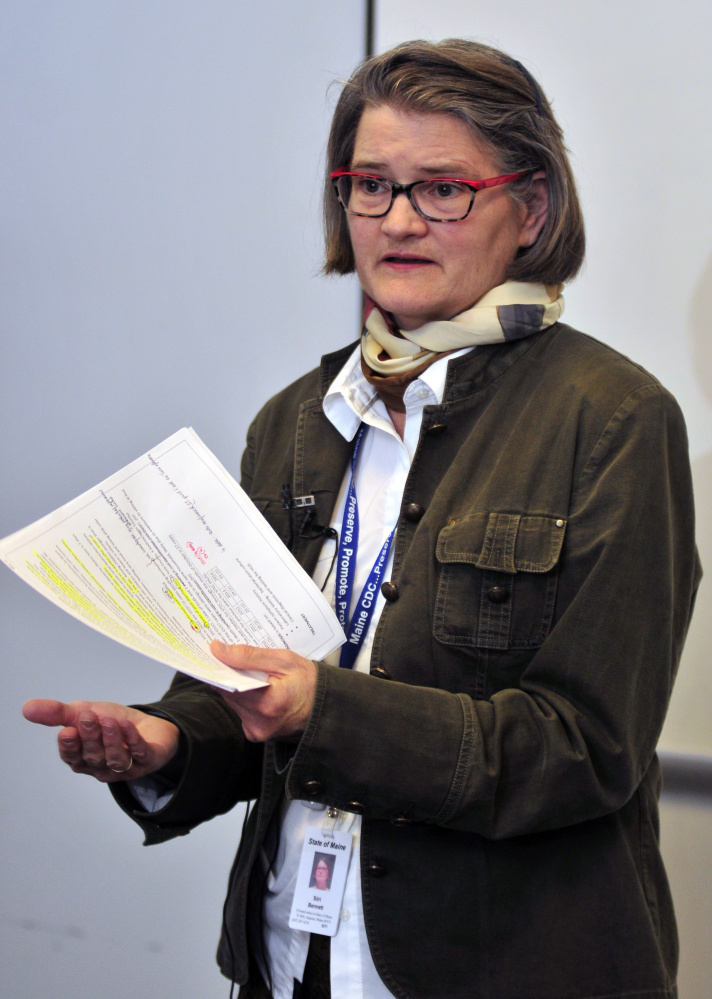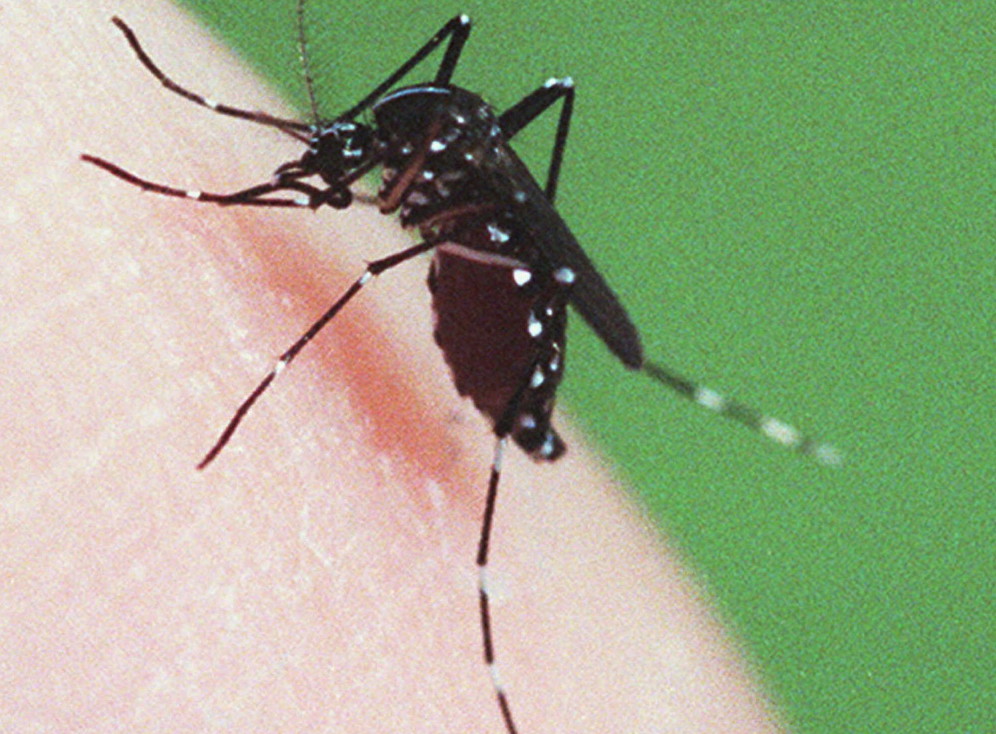A York County resident has died of Eastern equine encephalitis, marking the first death from the rare mosquito-borne disease recorded in Maine, the state’s Center for Disease Control and Prevention announced Tuesday.
The person, whose name wasn’t released but was described as being older than 65, died on Oct. 17. The person became ill with encephalitis in late September and was hospitalized in New Hampshire on Sept. 30, the CDC said.
A preliminary test done in October by New Hampshire’s public health laboratory was inconclusive and the sample was sent to the federal Centers for Disease Control and Prevention in Fort Collins, Colorado, for confirmation. The Maine CDC was notified of the positive result late last week.
“Our hearts go to out the family during this difficult time,” Dr. Siiri Bennett, the state epidemiologist, said in a statement. “As this disease is transmitted through a bite from an infected mosquito it’s important for Mainers to know that there is no current risk of EEE in Maine as there are no active mosquitoes.”
John Martins, spokesman for the Department of Health and Human Services, said the state CDC does not release any data other than the county where the person lived. He said state officials don’t know whether the person contracted EEE in Maine and would not speculate. When asked if he would contact the person’s family to see if they wished to speak publicly, Martins declined.
It is rare for humans to contract EEE, which cannot be spread by person-to-person contact. An average of eight EEE cases are reported each year in the United States – primarily along the East Coast – and about one-third of the people who contract the disease die, according to the federal CDC.
As of Nov. 17, the federal agency reported four cases of EEE nationally: one in Louisiana and three in New York. Two of the New York cases were fatal, according to Candice Burns Hoffman, a spokeswoman for the National Center for Emerging and Zoonotic Infectious Diseases at the U.S. CDC.
Maine’s first human case of EEE since testing began in 1964 was recorded in 2014 in a York County resident who was older than 65. That person was hospitalized in Maine and Massachusetts before going home to recover.
This year, only one mosquito pool in Maine tested positive for EEE. In 2014, 22 pools tested positive for EEE, according to the CDC.
New Hampshire has had 15 cases and five deaths from EEE since reporting its first case in 2004, but has recorded no human cases of EEE in 2015. Last year, two of the state’s three residents who contracted EEE died from the disease.
Beth Daly, chief of infectious disease surveillance for the New Hampshire Department of Health and Human Services, said her department releases the hometowns of people who contract EEE and West Nile Virus so they can be mapped on the state website.
“We’ll also raise the risk level for the town and communicate with town officials so people can take proper precautions,” she said.
Other than the town, New Hampshire officials release little other information about patients with EEE. While the state will confirm if the person is an adult or child, it does not release ages because, in the case of a death, it would be easy in a small state like New Hampshire to identify patients, Daly said.
In Massachusetts, where officials release only the county where a person was infected, there were 24 cases of EEE in the past decade resulting in at least 11 deaths, according to the Massachusetts Department of Public Health.
Many of the people who contract EEE have no obvious symptoms, according to the CDC. Some EEE patients may experience symptoms ranging from a mild flu-like illness to inflammation of the brain that lead to coma and death. Since antibiotics are not effective against viruses and no effective anti-viral drugs to combat EEE have been discovered, treatment for the disease usually relies on giving patients respiratory support and IV fluids while preventing other infections.
The disease is spread when birds bitten by infected mosquitoes fly to another area and are bitten by other mosquitoes, who then spread the disease to mammals, including humans. The disease is not transmitted person to person, and larger mammals are generally considered dead-end hosts because the concentration of the virus in their bloodstreams is usually insufficient to infect mosquitoes.
The threat of infection drops greatly as the temperature drops with the approach of winter, because mosquitoes become inactive at about 45 degrees and below.
Bennett said in an interview that there is no immediate concern about other EEE infections because mosquito season is over, but Mainers should be aware of how to protect themselves against diseases like EEE and West Nile Virus.
“We want people to keep in mind that mosquitoes carry a variety of diseases. It is relatively rare, but EEE does occur. The best way to make sure you don’t get infected is to make sure you don’t get mosquito bites,” she said. “It may not be mosquito season right this minute, but it will be here all too soon.”
Send questions/comments to the editors.





Success. Please wait for the page to reload. If the page does not reload within 5 seconds, please refresh the page.
Enter your email and password to access comments.
Hi, to comment on stories you must . This profile is in addition to your subscription and website login.
Already have a commenting profile? .
Invalid username/password.
Please check your email to confirm and complete your registration.
Only subscribers are eligible to post comments. Please subscribe or login first for digital access. Here’s why.
Use the form below to reset your password. When you've submitted your account email, we will send an email with a reset code.